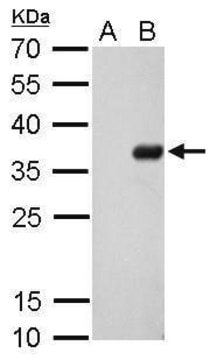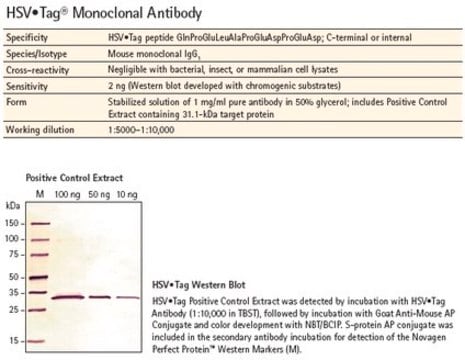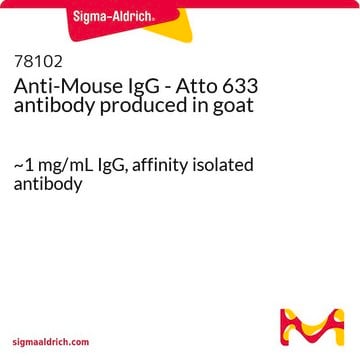SAB2702204
Monoclonal Anti-S Tag antibody produced in mouse
clone GT247, affinity isolated antibody
Synonym(s):
Anti-KETAAAKFERQHMDS tag, Anti-S peptide, Anti-S peptide epitope tag
About This Item
Recommended Products
biological source
mouse
Quality Level
conjugate
unconjugated
antibody form
affinity isolated antibody
antibody product type
primary antibodies
clone
GT247, monoclonal
form
buffered aqueous solution
species reactivity
human
concentration
1mg/mL
technique(s)
immunoprecipitation (IP): suitable
western blot: 1000-10000
isotype
IgG2b
shipped in
wet ice
storage temp.
−20°C
target post-translational modification
unmodified
General description
Immunogen
Application
Features and Benefits
Other Notes
Physical form
Disclaimer
Not finding the right product?
Try our Product Selector Tool.
Storage Class Code
12 - Non Combustible Liquids
WGK
nwg
Flash Point(F)
Not applicable
Flash Point(C)
Not applicable
Certificates of Analysis (COA)
Search for Certificates of Analysis (COA) by entering the products Lot/Batch Number. Lot and Batch Numbers can be found on a product’s label following the words ‘Lot’ or ‘Batch’.
Already Own This Product?
Find documentation for the products that you have recently purchased in the Document Library.
Our team of scientists has experience in all areas of research including Life Science, Material Science, Chemical Synthesis, Chromatography, Analytical and many others.
Contact Technical Service








